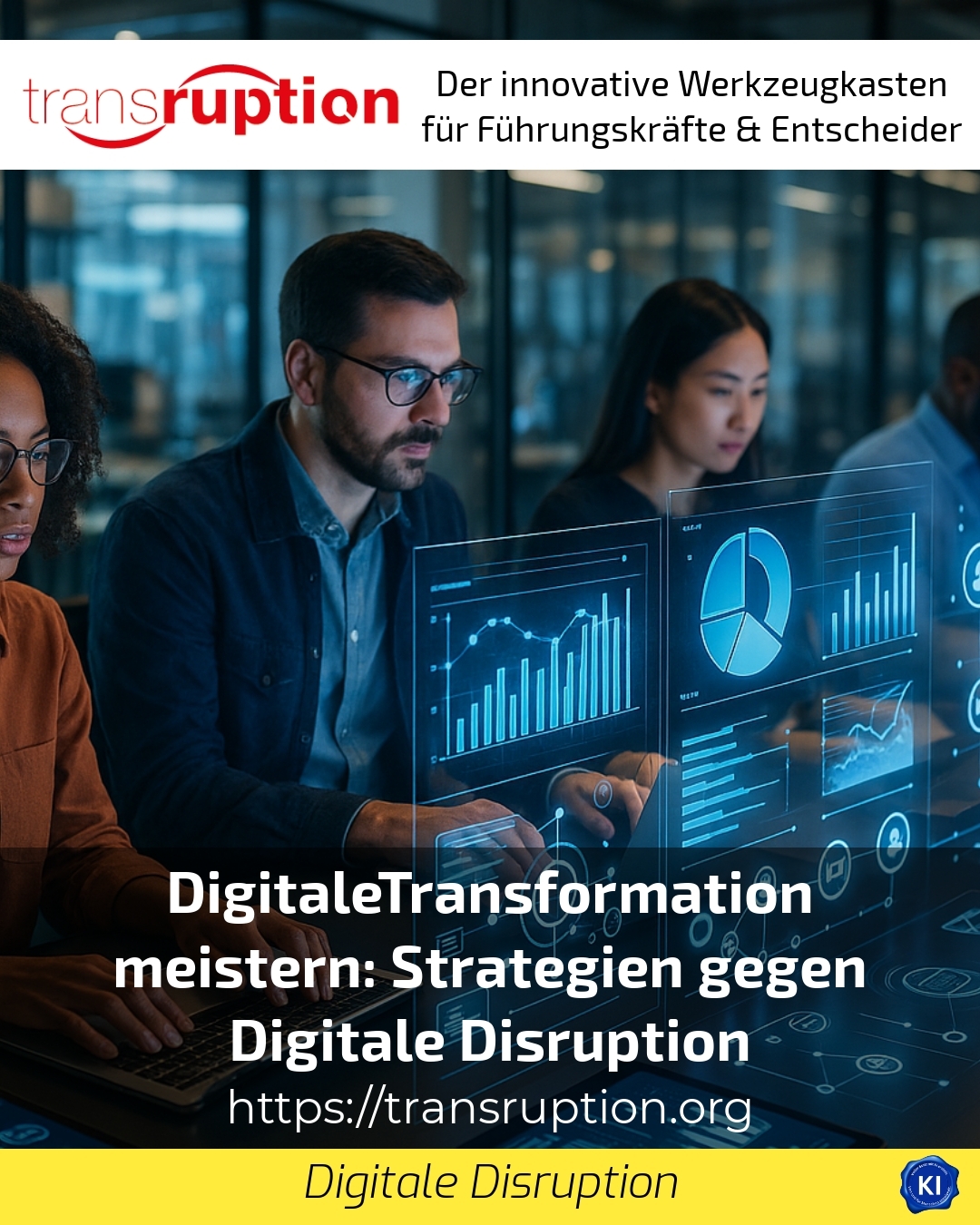Successfully shaping digital transformation: Strategies against digital disruption
The digital transformation poses major challenges for companies. Many organisations are looking for support in coping with the constantly advancing digital disruption. Clients often report that the transition to digital business models seems complex and that the right strategies are lacking. It is therefore important to understand change as a process in which support and impetus are crucial to achieving sustainable success.
Key aspects of the digital transformation
Intensive preparation is important for mastering digital transformation. Companies benefit from integrative digital solutions that network different systems. This networking simplifies work processes and increases efficiency. At the same time, the use of modern technologies, such as artificial intelligence, enables new forms of automation and data analyses to be used. This not only allows business processes to be optimised, but also innovative business models to be developed.
For example, organisations are developing digital platforms that allow customer data to be evaluated in a targeted manner and personalised offers to be made. This promotes customer loyalty and improves the user experience. However, the growing digital infrastructure also poses new challenges in the area of IT security. A solid security concept is therefore often accompanied as part of a comprehensive digital strategy.
Agility and adaptability are key
A flexible corporate culture plays a key role in supporting the digital transformation. Agility helps to react more quickly to changes and integrate new technologies effectively. This includes flat hierarchies, short decision-making channels and the promotion of a culture of innovation. Employees are encouraged to be creative and try out new solutions, even if they involve risks.
In industries such as manufacturing or the service sector, agile teams are often the driving force when it comes to implementing digital transformation projects. They enable rapid iteration and adaptation, which is crucial in a constantly changing market environment.
BEST PRACTICE at company XYZ (name changed due to NDA contract) A medium-sized company from the logistics sector used agile methods to modernise its software landscape. Short feedback cycles and regular workshops enabled process optimisations to be implemented more quickly. The team reported that the close collaboration and iterative approach created a stable foundation for the digital transformation.
Employee qualification and digital skills
Digital skills are indispensable for driving the digital transformation forward. This is why companies are increasingly investing in training and further education. In addition to technical skills, the training courses also cover the secure handling of data and software as well as the use of digital tools in everyday working life.
In the financial sector, for example, training programmes promote knowledge in areas such as big data and AI, while in retail, employees learn how to use digital channels efficiently. This enables the workforce to better utilise digital potential and actively support digital development.
BEST PRACTICE at company XYZ (name changed due to NDA contract) A service provider from the healthcare sector set up its own learning portal for digital skills. Employees were able to train flexibly on topics such as process automation and data security. This led to greater acceptance of digital changes and improved collaboration between IT and specialist departments.
Technological innovations as leverage
The targeted use of technology is a central component of digital transformation. Technologies such as AI, big data and cloud computing open up new room for manoeuvre. Routine tasks are simplified through automation and data-based decisions gain in quality and speed. Companies in the media industry, for example, benefit from personalised content that better meets user needs.
At the same time, investment in digital platforms and a high-performance infrastructure is essential. This is the only way to efficiently implement digital business models and adapt them to changing market requirements. Hybrid work and networked systems are other aspects that are becoming increasingly important.
BEST PRACTICE at company XYZ (name changed due to NDA contract) A company in the electrical engineering sector opted for a cloud-based solution for project coordination. The digital platform enabled cross-location collaboration in real time and thus reduced time-consuming coordination. At the same time, data analyses were used to identify and eliminate bottlenecks in the production process.
Digital transformation as sustainable support
Digital transformation is often seen as a long-term process that requires constant support. Many organisations feel unsure about this and seek advice that provides them with systematic support. The transruptions coaching method offers such a framework by providing impetus and methodically accompanying projects without formulating promises of effectiveness. In this way, companies can ensure that their digitalisation projects are implemented in a practical manner and can react to changes.
Colleagues and managers are empowered by the coaching approach to promote their own digital skills and realise internal potential. As a result, digital transformation becomes manageable and gains structure, which makes it easier to deal with disruptive changes.
My analysis
Digital transformation requires a strategic orientation that brings together technological, organisational and cultural aspects. Successful companies focus on integrating modern technologies, strengthening employees' digital skills and creating agile structures in order to react flexibly to changes. Professional support enables projects to be organised in a targeted manner and uncertainties to be reduced. This turns digital change, which is often perceived as a threat, into an opportunity for sustainable development and innovation.
Further links from the text above:
[1] 21 Digital Transformation Strategies for Success in 2025
[2] Digital disruption: how it is changing companies
[4] Digital Transformation Strategy: How to Build, Key Trends in 2025
[5] The secret of digital disruption - BFBM.de
[7] 10 Digital Transformation trends in 2025 - Veritis Group Inc
For more information and if you have any questions, please contact Contact us or read more blog posts on the topic TRANSRUPTION here.















